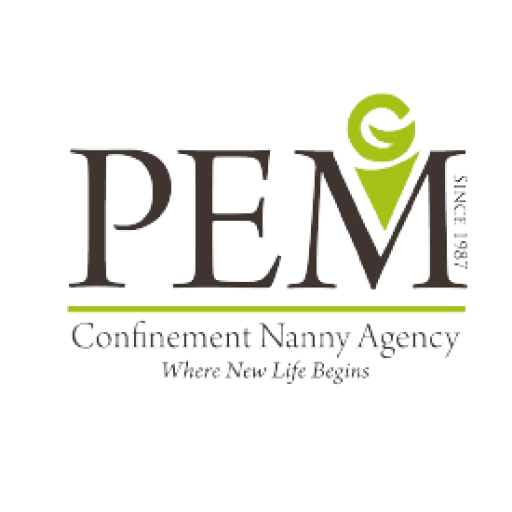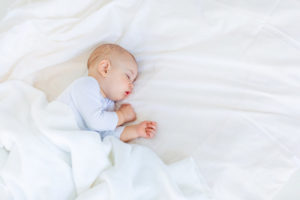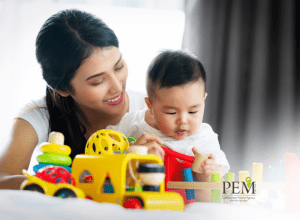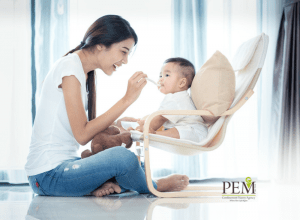[email protected] ♦ (+65) 6293 9249 ♦ Mon - Sun : 10:00AM - 7:00PM
Basic & Effective Hygiene Care For Mother & Baby
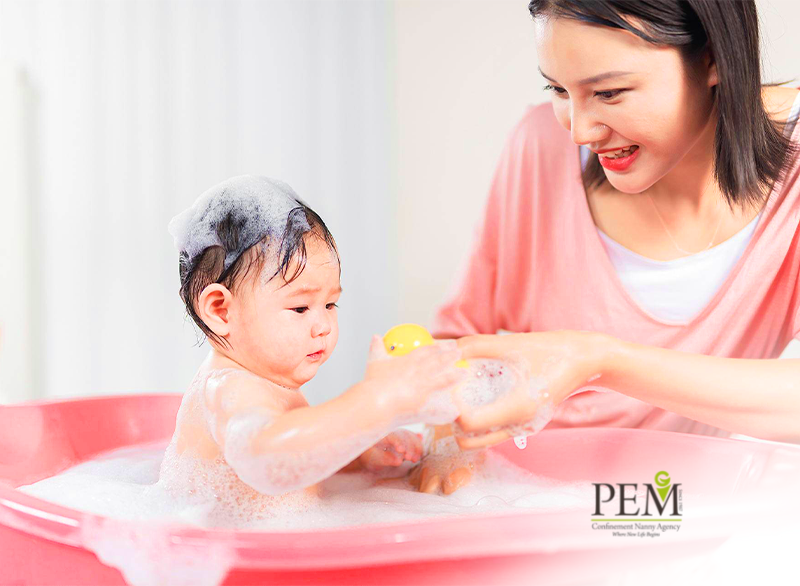
It’s no secret that babies don’t have as strong an immune system as adults. However, that being said, post-delivery, your immune system will also be a little weaker as well. Not to go into all the scientific and medical details, it’s basically that loss of blood during as well as the days or weeks after that’s compromising your systems.
Thus, it is only logical that one would be curious as to how they should care for themselves after giving birth. After all, how can you take care of others when you’re otherwise incapacitated in bed with the flu yourself, right?
Well, you can always start with the obvious enlistment of assistance from friends and family to help around the house with your laundry, baby care, dietary restrictions, and a myriad of other to-do’s while you are recovering from that C-Section or vaginal birth.
Interestingly enough, we’ll take a tiny weeny bit of a detour here and say that in lieu of any friends and/or family being able to help you out, a confinement nanny will be your best bet. However, not all nannies are created equal…or trained equal, shall we say. Now, our nannies go through the strictest and most comprehensive training available, borne from our decades of experience taking care of mummies in confinement as well as those newly born newborns.
It’s from this experience that we’re also bringing you this little guide to walk you through hygiene care during confinement. Note that this is not a one-size-fits-all situation, and if you feel that mother’s intuition is kicking in that something might be wrong or if there’s a medical issue on the horizon, then, by all means, get that sorted out and consult your medical healthcare professional.
Now that the disclaimer is out of the way, without further ado, let’s do further!
Rest
Now, while this may not look like a hygiene-related point to start off with, there are actually a few things here that can be of particular importance to focus on and to get right.
As we’ve mentioned earlier, blood loss doesn’t just end after you’ve given birth. Let’s get that out of the way right off the bat. There’s this thing called “lochia”, which is the post-delivery discharge that will gradually change in shade from sanguine or blood-red or wine-red…which shade it is will differ from individual to individual, but it’s usually red-ish in the initial stages. After some time, it then lightens to pink, then brown, and finally to yellowish, and then lessens.
At this point, it should be somewhat clear what direction we’re going in this topic. Your rest is important to help you in your recovery; yes, that is not a matter for discussion. What is a matter of discussion would be that of the environment in which you’ll be resting.
Imagine being in bed most of the 30 days that you’re in confinement, you really wouldn’t want to be laying in bed on sheets that have stains and spots/blotches on them, right? Even if the aesthetics of that doesn’t faze you, the hygiene of it should!
Some tips we can give you here would be to try changing your sheets as frequently as possible and, speaking of changing things, perhaps changing your menstrual pad every now and then to lessen the risk of any sort of infection. Remember, taking care of your health isn’t just about the physical bits but also your frame of mind. Recuperating in a bed that hasn’t seen a clean sheet since your delivery isn’t a good recipe for a healthy mind.
Clothes
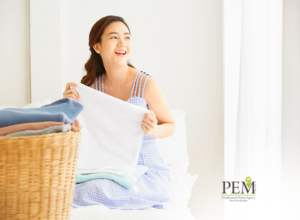
The thrill of seeing her new baby, the travel back home, the clothes to wear after delivery, and on the route back home all come with a lot of emotions and duty for a mother. There are so many things to consider.
After giving birth, a woman’s body undergoes significant modifications. Your breasts become sensitive, your stomach swollen, and the clothing you wear during this phase is quite important. Regular women’s fitted clothing can be unpleasant after delivery, and you may be puzzled about what to wear returning home after delivery.
It is critical to purchase clothing that will help your healing and recovery process more comfortably after birth while also allowing you to look attractive and stylish as you leave the hospital, but most importantly, you’ll need them to also be easy to use and change.
The whole reason behind this concern is quite similar to the idea for changing out the sheets on your bedding. You’ll be wearing those clothes, and as much as you want to look good, you’ll also want to FEEL good. So, don’t wear clothes that are restricting or too thick, as the last thing you want at this point is to have bacteria proliferating around your wounds. Just as a sort of illustration of what happens when there’s minimal passage of air to the skin covered by restrictive clothes or those that are way too thick, there’s rash, there’s sometimes certain odours, and infections could occur.
Personal Hygiene
Okay, so we’ve heard mothers ask before – “Eh, I hear my mother-in-law say that need to stay away from shower ah after giving birth?”
Well, you see, if you were living in parts of ancient China where the air isn’t as humid and they didn’t have the modern appliances of heaters for their baths, then, yeah, it might be understandable to avoid that cold water altogether as it is commonly cited in Traditional Chinese Medicine as being able to introduce ‘wind’ into your body that way.
In this day and age, however, cleanliness is key. So, use that water heater and take some hot (or warm) showers. You really do want to keep yourself as clean and hygienic as humanly possible so that you don’t fall sick to an infection of some description.
That said, what about your baby?
Well, let’s keep this one short, simple, and direct. We want to keep them as clean and healthy as possible. Remember that thing we said earlier about their immune system? That’ll be the main reason why you want them away from any inkling of something that will harm them.
So, diapers, do not leave them on too long, or they’ll get diaper rash or, worse still, infections. The skin of a newborn is soft and delicate and should be handled with care. Correct diapering ensures that your child’s tender bottom is protected from diaper rashes. New mothers should consider the use of disposable diapers that help safeguard against moisture, which is the primary cause of rashes. Moreover, always wash your hands before and after changing the nappies. Nappy change should be done after the nappy is soiled. Allow the baby’s tender bottom to air-dry before diapering them again. Apply petroleum jelly ahead of every change of diaper.
Oh, for those of you mummies who absolutely love keeping your nails. Maybe for this period of your life, try to keep everyone’s nails trimmed regularly. It’s no secret that there are bacteria and dirt underneath the nails and what we really don’t want is to accidentally scratch the baby. If you’re thinking, “But I won’t scratch my own baby”,…well, first off, that’s sort of why we “accidentally scratch the baby” you may not intend to do so, but it may happen.
Also, it’s the possibility of the baby scratching themself that we also want to take out of the equation. Besides, it will also help during breastfeeding and massages…you’ll thank us later, don’t worry.
How about bathing the baby? Well, the correct way to wash a newborn is through sponge baths. It’s quite simple. You need a soft washcloth or sponge, a baby soap, and warm water for a sponge bath. Dip the washcloth or sponge in the warm water and gently wipe your baby’s skin. Apply baby soap on your child’s skin. Be careful to avoid the ears, eyes, and nose. Once done, use a sponge or washcloth to rinse off the soap lather. Use something soft like a towel to dry the baby, apply petroleum jelly and dress the newborn appropriately.
| Handy Tips to Make Your Baby Feel Secure
A crucial role of being a new mother is to guarantee the complete safety of your new-born, without verbal communication since your child cannot speak. In this case, you need to harness the power of swaddling and hugs. In fact, doctors often encourage moms to embrace their babies. Swaddling involves snugly wrapping your baby in wrappings to mimic the secure environment of the womb. Moreover, hugging your baby or holding them close to your chest helps to soothe them especially when they hear your heartbeat. In effect, the baby feels safe, thus reducing stress. |
Closing Words
Adjusting to daily life after the birth of your child presents its own set of obstacles, mainly if you are a first-time mother. Although it is critical to care for your kid, you must also care for yourself. Most new mothers do not return to work for at least six weeks after the birth of their child; this time allows new mothers to adjust and adapt to the routine of having a new human in their life. Because a baby must be fed and changed frequently, you may have sleepless evenings.
It can be annoying and exhausting. The good news is that you will soon become accustomed to your schedule. Whether you deliver spontaneously or via c-section, caring for your post-partum body is just as vital as caring for your newborn – rigorous devotion to a healthy diet, adequate rest, and post-delivery hygiene are all essential.
Why not make things easier for yourself by looking for the best confinement nanny in Singapore? Find a nanny in Singapore (especially one from PEM, wink, wink), and they’ll guide you through the smoothest confinement you’ll be able to find anywhere across this little red dot. Remember, our nannies have over 30 years of experience in the field and will know exactly what to do for you.
Whether it is helping you do the laundry (yes, mummies, all of your baby’s clothes will be hand washed), or helping you bathe your little bundle of joy, and maybe preparing you a warm and relaxing herbal bath so that you can recover in optimal style as well as fashion, our PEM nannies have you covered. Simply swing by our homepage and browse our packages today!
